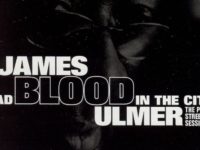This album doesn’t represent Blood Sweat and Tears’ commercial high point, so much as its often underrated innovative peak. Child is Father to the Man, released on Feb. 21, 1968 — and recently released with a stunning 5.1 multichannel mix from frontman Al Kooper — was always more interested in creative vistas than chart position.
Not that it isn’t accessible, from Kooper’s patentedly blues-fired “I Love You More Than You’ll Ever Know” to their sensitive reading of singer-songwriter Tim Buckley’s “Morning Glory” (featuring Steve Katz on vocals) to the James Brown-influenced “Somethin’ Goin’ On” to a jazz-inflected bossa nova update of “Without Her” by Harry Nilsson. Child is Father to the Man walks a very fine line, offering moments of free-form experimentalism within a larger framework of American songcraft.
As such, this is the sound of wide open spaces, in a period after the release of the Beatles’ Sgt. Pepper’s Lonely Hearts Club Band when it seemed as if pop music had been unshackled forever by convention. Blood Sweat and Tears’ 1969 self-titled follow up, featuring five holdovers from this project plus four new members including David Clayton-Thomas, illustrated how briefly that period lasted — as the reworked lineup rounded off the Kooper-led group’s edges on the way to a series of huge hits.
[SOMETHING ELSE! INTERVIEW: Longtime sideman Jimmy Vivino stops by to talk about the amazing turn of events that found him recreating the legendary ‘Super Session’ sound with Al Kooper.]
That subsequent success has perhaps doomed Child is the Father of the Man to a lasting status as more respected than necessarily enjoyed. The average fan is more apt to settle into the Blood Sweat and Tears radio favorites that quickly followed, including “Spinning Wheel” and a cover of Brenda Holloway’s “You’ve Made Me So Very Happy” — the latter of which, by the way, was arranged by a Kooper — without exploring any further back.
A limited-edition Audio Fidelity reissue from 2014 provides the perfect opportunity to get off Blood Sweat and Tears’ beaten path, as Al Kooper builds upon the blues-folk vibe of his previous work with the Blues Project, starting with the addition of classical strings and funky brass. Katz was, of course, a holdover from that earlier underground group, which had hinted at what Blood Sweat and Tears would do on 1966’s complex and occasionally swinging Projections. But the horns-less Blues Project could never approach the muscular brawn of Blood Sweat and Tears, as Kooper cannily patched Maynard Ferguson’s metallic thump into a rock setting with an assist from sax-playing co-arranger Fred Lipsius.
John Simon, then just beginning a celebrated stint as producer with the Band, would oversee a project that grew to include Randy Brecker, Jim Fielder (who’d been in Tim Buckley’s group), Bobby Colomby, Dick Halligan and Jerry Weiss. Owing to the technological shortfalls of the day, Fielder’s bass and Colomby’s drums were recorded on a single track — making Al Kooper’s latest digital-age reclamation project considerably more difficult. The horns, meanwhile, were recorded to two more of their eight total tracks. Modern tools, including frequency-shifting software, allowed Kooper to properly separate the instruments for the 5.1 mix of Child is Father to the Man — leading to a much broader aural space. At one point, in fact, the horns now completely encircle Randy Newman’s “Just One Smile.”
In the end, no matter the audio improvements, Child is Father to the Man wouldn’t stand up without its virtuoso musical moments, as Kooper and Co. pushed outward to the edge of a musical frontier that nobody even knew was there. Blood Sweat and Tears move with power, wit and grace through a soaring pop anthem like “I Can’t Quit Her” and then the Technicolor tapestry of “Meagan’s Gypsy Eyes,” across the pastoral dreamscape of “House in the Country” and into the strange string-enveloped psycho-drama of “The Modern Adventures of Plato, Diogenes and Freud,” finishing with a smart reworking of Percy Sledge’s soul-kissed “So Much Love.”
[SOMETHING ELSE! INTERVIEW: John Simon discusses a history with the Band that stretches from the early days of ‘Big Pink’ to an initial farewell on ‘The Last Waltz’ and their comeback with ‘Jericho.’]
Then there’s the retrospective irony of “My Days Are Numbered,” which grew out of the group’s earliest demos — and then seemed to eerily predict Kooper’s one-album stint with Blood Sweat and tears. In truth, though, Child is Father to the Man proved more influential — the guys in Chicago owe Kooper a bottle of his favorite libation — than it did commercially viable, having stalled at No. 47. It was probably too adventurous, too gloriously, hard-headedly adventurous. And, bless Al Kooper, it still is.
- Nick DeRiso’s Best of 2015 (Rock + Pop): Death Cab for Cutie, Joe Jackson, Toto + Others - January 18, 2016
- Nick DeRiso’s Best of 2015 (Blues, Jazz + R&B): Boz Scaggs, Gavin Harrison, Alabama Shakes - January 10, 2016
- Nick DeRiso’s Best of 2015 (Reissues + Live): John Oates, Led Zeppelin, Yes, Faces + others - January 7, 2016



